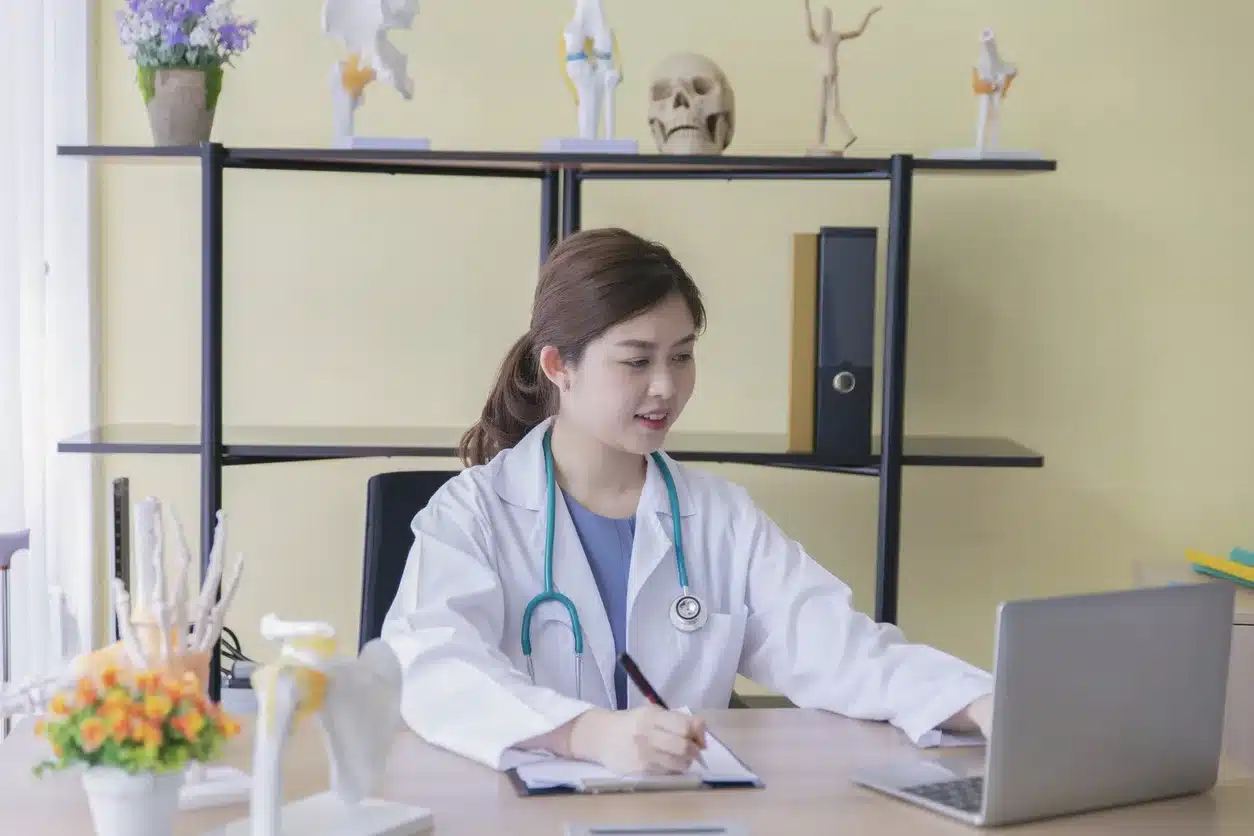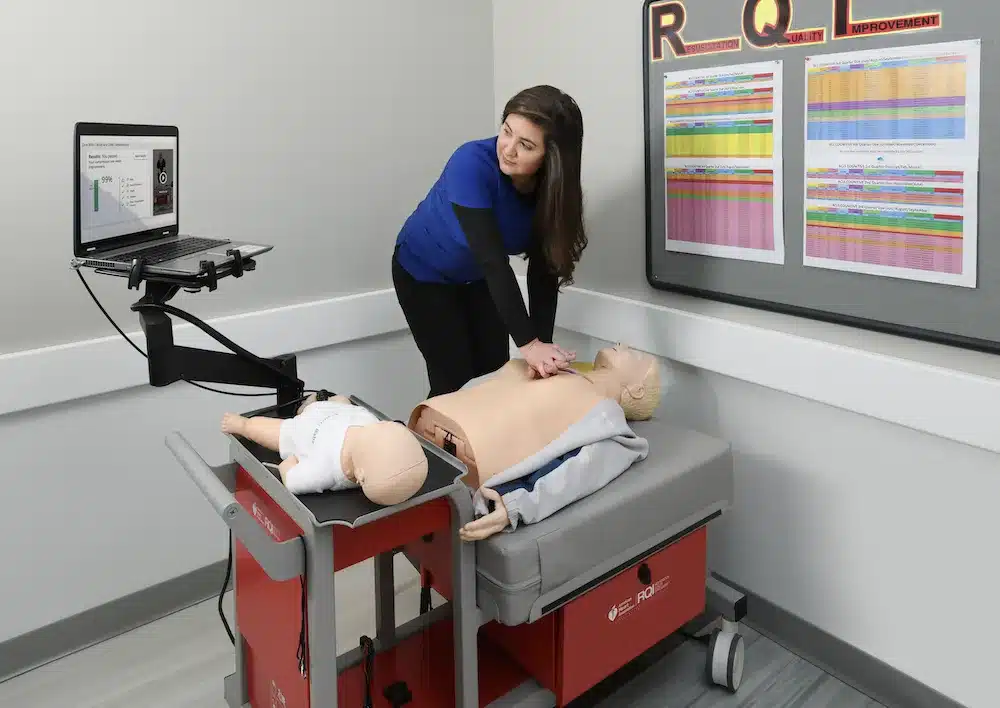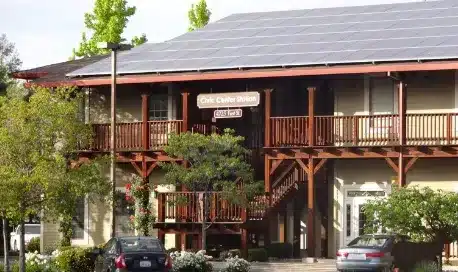BLS, ACLS, PALS, First-aid & CPR Classes in Pleasanton, CA
Course Registration
Safety Training Seminars provides American Heart Association BLS, ACLS, PALS and CPR classes in Pleasanton, CA. This office is located near the surrounding cities of Livermore, San Ramon, Dublin and Verona.
If you are looking for CPR classes in Pleasanton, you can get the AHA certifications for BLS, ACLS, or PALS.
If you are already registered for a CPR course in Pleasanton, please read the important information below about your upcoming course.
Important Information About Your Upcoming Course
Directions to Pleasanton CPR Classroom
Mandatory Videos To Watch Before your Course
Our studies have shown that those who watch the videos increase their chances of passing by about 50%.
If you do not watch the videos, you will still probably pass, but you will be spending a lot more time in the classroom.
Please spend a few minutes watching the two videos below.
RQI Online Course – What to Expect
You can start and stop the online course as needed. Be sure to use a computer or tablet while taking the American Heart Association online course (a phone will not work). The BLS Heartcode online course is adaptive to your current level of knowledge.
As such, the length of the online course is variable depending on your experience and skill level. (BLS: 1-2 hours, ACLS or PALS 3-4 hours)

Day of Skills Testing – What to Expect
Show up to your Pleasanton CPR testing location on the registration date and time you selected with your RQI login and the entry instructions that were texted/emailed to you. After you put on a pair of gloves, enter your login and password on the computer (use the keyboard or touch screen). Follow the on screen directions to activate your skills session.
The VAM (voice assisted manikin) will guide you through the skills testing. An instructor will not be present, but you can call our office during your session if you have any questions. We have a dedicated and friendly team to help you if you need assistance.

RQI Skills Testing - How to Pass
♥ Watch the review videos above to save time at your skills testing.
♥ Make sure you allow full chest recoil.
♥ Switch rolls quickly when doing 2-person CPR (within 5 seconds).
♥ Pause when you see a Red Stop icon & the computer says Do Not Interrupt
♥ Count out loud when doing compressions.
♥ Use the step stool under the manikin if needed for better leverage.
♥ When giving breaths with the Bag Valve Mask, tilt the head back & lift the chin.
♥ You will receive your certification card on the day of the class.

Performing CPR is Physically Exhausting
By registering for a class, you understand that performing chest compressions on the manikin can hurt your hands, wrists, arms, or body. If you have any pre-existing physical limitations (pain, carpal tunnel, weakness, or injury), we suggest you wait until you are feeling better.
If you become tired or run out of time and need to come back to complete your skills, call our office. We can reschedule you for no extra fee. Or you can stay in the room to finish up your skills.

CPR and First-aid classes in Pleasanton, CA
CPR and First-Aid classes have become increasingly important in today’s fast-paced world. In Pleasanton, California, these classes have gained significant popularity as residents recognize the need to be prepared for emergencies. The classes are designed to provide individuals with the skills needed to respond effectively to a variety of emergency situations, potentially saving lives in the process.
The importance of CPR (Cardiopulmonary Resuscitation) cannot be understated. Every year, countless lives are lost due to sudden cardiac arrest. By learning CPR, individuals can make a dramatic difference in these dire situations. The classes in Pleasanton cover the essential aspects of CPR, including chest compressions and rescue breaths, which can help maintain vital blood flow to the heart and brain until professional medical help arrives.
First-aid classes, on the other hand, equip individuals with the knowledge to handle a wide range of emergencies, from minor cuts and burns to more severe injuries like fractures and dislocations. These classes cover topics like wound care, managing shock, and handling allergic reactions, among others. They also teach individuals how to use common first-aid equipment such as bandages, tourniquets, and EpiPens.
Classes in Pleasanton are typically structured in a way that combines theoretical instruction with practical, hands-on training. This approach ensures that participants not only understand the principles behind CPR and first-aid but also feel confident in their ability to apply these skills in real-world situations.
One of the significant benefits of taking these classes is the sense of empowerment they provide. Being equipped with life-saving skills can give individuals a heightened level of confidence in their ability to handle emergencies. This can be especially beneficial for parents, teachers, sports coaches, and others who are often responsible for the well-being of others.
These classes are also known for their inclusivity. Regardless of one’s background or occupation, everyone is welcome to learn these vital skills. This inclusivity extends to age as well, with classes available for both adults and young people. This is particularly important as it fosters a community-wide culture of readiness and response.
Moreover, the classes are flexible, allowing individuals to learn at their own pace. They cater to different learning styles and schedules, ensuring that everyone has a chance to acquire these crucial skills. Whether you prefer weekend classes, evening sessions, or even online courses, there are options available to suit your needs.
In conclusion, CPR and First-Aid classes in Pleasanton, CA, are an invaluable resource, providing residents with the skills needed to respond effectively to emergencies. They foster a sense of empowerment and responsibility, promoting a culture of preparedness within the community. Given the potential life-saving impact of these skills, one might consider them not just optional but essential. So why wait? Equip yourself with the knowledge that could one day save a life. It’s an investment in safety that’s well worth making.


